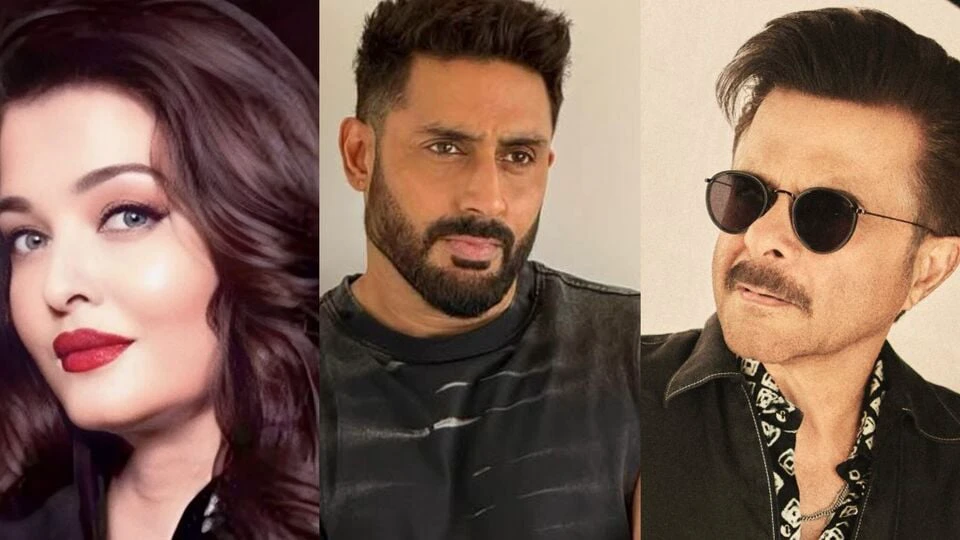Can an AI-generated video, cloned voice or fake selfie featuring a Bollywood star land you in legal trouble? Increasingly, yes. As generative AI and deepfake technologies proliferate, several prominent Indian celebrities – from film icons and playback legends to industrialists – are turning to the courts to safeguard their personality and publicity rights.
These legal protections guard against the unauthorised commercial use of a person’s name, image, voice, likeness or even signature catchphrases.
In recent months, a growing list of well-known personalities – including Aishwarya Rai Bachchan, Amitabh Bachchan, Jackie Shroff, Anil Kapoor, Abhishek Bachchan, Kumar Sanu and even the late Ratan Tata – have approached the Delhi High Court seeking injunctions against misuse of their identity online, much of it driven by AI-generated content.
Aishwarya Rai Bachchan
In September 2025, Aishwarya Rai Bachchan filed a petition seeking protection against the unauthorised commercial use of her name, voice, image and likeness. The plea was prompted by fake websites falsely presenting themselves as her “official” platforms and selling merchandise featuring her image without permission.
Abhishek Bachchan
On September 12, 2025, Abhishek Bachchan filed a petition to protect his publicity rights amid the misuse of his image, voice and likeness – including the creation of AI-generated explicit content. His plea also sought the removal of infringing URLs and the blocking of websites hosting unlawful material.
Ratan Tata
In February 2025, months after industrialist Ratan Tata’s death, the Tata Group and Ratan Tata Trust sought legal protection for the late business leader’s name and image. The Delhi High Court recognised “Ratan Tata” as a well-known mark and issued a permanent injunction against a journalist attempting to use it for an unauthorised award ceremony, citing the need to protect its goodwill and legacy.
Amitabh Bachchan
In 2023, legendary actor Amitabh Bachchan moved the Delhi High Court over unauthorised use of his name, image and distinctive voice. The court granted interim relief, barring misuse of his persona and preventing further infringement of his rights.
Jackie Shroff
In 2024, actor Jackie Shroff, popularly known as Jaggu Dada, filed a lawsuit to stop the misuse of his image and name in merchandise, mobile apps and other commercial activities. The court upheld his personality rights, restraining others from exploiting his identity without authorisation.
Anil Kapoor
Actor Anil Kapoor also sought legal protection in 2023 to safeguard his name, image, voice and even his iconic catchphrase “Jhakaas” from being exploited without consent. The Delhi High Court ruled in his favour, recognising his personality rights and barring unauthorised commercial use.
Suniel Shetty
Bollywood actor Suniel Shetty has approached the Bombay High Court to protect his personality rights, citing misuse of his image on social media for business promotion, as reported by Bar and Bench.
Karan Johar
Bollywood filmmaker Karan Johar moved the Delhi High Court seeking protection of his personality rights, alleging rampant misuse of his name, photographs, and likeness on social media platforms and websites without consent.
Kumar Sanu
Joining the growing list of celebrities taking legal action, legendary playback singer Kumar Sanu has also moved the Delhi High Court, seeking protection of his personality and publicity rights, including his name, voice, singing style and image, amid increasing misuse of celebrity identities online.
Sanu’s petition highlights concerns over AI-generated audio mimicking his voice and vocal techniques, as well as the unauthorised commercial use of his likeness on social media platforms and merchandise – often without his knowledge or consent.
Why Personality Rights Matter
Personality rights, also known as publicity rights, give individuals legal control over the commercial use of their identity – including their name, image, voice, mannerisms, gestures, or phrases – and help prevent unauthorised exploitation.
Although India lacks a dedicated statute for personality rights, courts have consistently recognised and enforced them under Article 21 of the Constitution and through common law principles such as passing off and misappropriation of goodwill.
“Indian courts have consistently recognised personality and publicity rights primarily under Article 21, enforced through common law torts,” said Mihir Rale, Partner & Co-Head, Digital+, TMT, at Cyril Amarchand Mangaldas. “This right is particularly significant in the era of AI and deepfakes.”
Supreme Court advocate Nipun Saxena adds that these rights stem from the Copyright Act, giving celebrities proprietary ownership over their voice, image, body and face. “Celebrities legally control how their identity is used and can act against any unauthorised commercial exploitation,” he explained.
A New Legal Frontier In The Age of AI
The surge in deepfakes and AI-generated content has made the protection of personality rights more urgent than ever. Celebrities are raising concerns about a range of issues – from unauthorised merchandising and fake profiles to AI-cloned voices and explicit content – and the courts have responded by directing platforms to remove infringing content and block unlawful websites.
As India continues to grapple with the legal implications of AI, legal experts believe more celebrities will turn to the courts to assert control over their digital identities. Until dedicated legislation is enacted, judicial precedents will remain the primary safeguard against the unauthorised exploitation of fame in the AI era.
